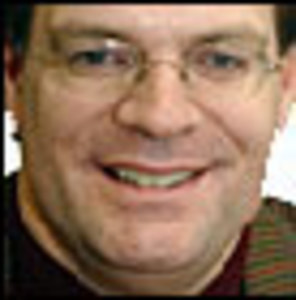As Canadians emerge from summer vacations and reconnect with politics, the news is likely to remain dominated by international affairs for a while.
This is particularly true in Quebec, where the tragic start of the Van Doos' tour of duty in Afghanistan raised awareness and concern about the mission to unprecedented levels.
In this turbulent context, it is interesting to note the rise of two new foreign policy players on the federal stage, both of them Quebec francophones and both sending a clear message regarding their respective leader's priorities and orientations.
In all likelihood, some of the key debates on foreign policy in the upcoming session of Parliament will involve Stéphane Dion's hand-picked candidate for by-election in the traditionally safe Liberal riding of Outremont, Jocelyn Coulon, and Stephen Harper's new minister of foreign affairs, Maxime Bernier.
Who are these new players and what do their nominations mean?
Above all, the rise of these new partisan voices signals that in the coming election battle Canadians will be presented with two sharply contrasted views of foreign policy.
Jocelyn Coulon, 50, is a journalist who covered international affairs for Le Devoir for 15 years before he became director of the Pearson Peacekeeping Centre, from 1999 to 2003. Recently, he has been a regular columnist for La Presse, as well as a visiting professor and research associate at the Université de Montréal, where his work is widely appreciated.
Coulon's prolific writing and conference appearances have earned him the respect of specialists of military and international affairs across Canada and beyond, but they also clearly established him as a strong critic of American and Israeli foreign policies, and an equally strong proponent of proactive multilateralism in Canada's Pearsonian tradition.
Although his criticism of Israeli policies stirred controversy over his nomination, which might cost him votes on Sept. 17, Coulon is the odds-on favourite to join another former Université de Montréal colleague, Stéphane Dion, on the opposition benches.
If he does, the tone of the Liberals toward Harper's policies of rapprochement with the Bush administration is likely to move up several notches. And even if he fails to win the Outremont riding, his nomination sends a clear signal about the Liberal leader's own thinking in international affairs: he wants to distance himself as far as possible from the much-despised, catastrophic policies of George W. Bush.
Maxime Bernier, 44, won the Conservatives' biggest majority in Quebec in January 2006 in the riding of Beauce, where his father served two terms under Brian Mulroney.
A lawyer and a businessman, Bernier made a foray into the world of ideas as the vice-president of the ideologically conservative Institut économique de Montréal, but he left few written traces of his policy thinking – and virtually none on international affairs.
As a political rookie, Bernier owes much of his meteoric ascension to Harper's success in appealing to Quebec voters, and to his unfailing loyalty to his leader.
Above all, Bernier owes his promotion to foreign affairs to the fact that his predecessor, Peter MacKay, and the minister who was in charge of "selling" the Afghan policy to Quebecers, Josée Verner, failed in stemming the tide of opposition to the mission in the province.
The nomination of Bernier, a staunch free trader who is ideologically close to the American conservative movement, reaffirms Harper's commitment to continental economic integration and to a foreign policy in harmony with Canada's powerful neighbour.
On another level, by nominating a loyal lieutenant who is a blank slate on foreign policy, the Prime Minister shows that, while he trusts Bernier's ability to smooth-talk Quebecers on Afghanistan, he wants to be in sole command of the substance of Canada's foreign policy.
Finally, when the Prime Minister reshuffled his cabinet on Aug. 14, he revealed that he has made up his mind as to which way the wind blows in this province.
The Quebec ministers who moved up (Bernier and Verner) have strong connections to Mario Dumont's ADQ and come from that party's regional stronghold, while those who stalled (such as Michael Fortier and Lawrence Cannon) are identified with Jean Charest and the Quebec Liberals.
In Quebec, after all, the old American adage that "all politics is local" sometimes translates into "all politics is Quebec politics."
Keep this in mind when Bernier, a smooth, plain-talking Beauceron, confronts Dion and Coulon, two bookish Montreal intellectuals, in what will look on the surface like a debate about Canada's place in the world.
***
Pierre Martin is a professor of political science at the Université de Montréal and a member of the Université de Montréal-McGill Research Group in International Security.
FRANCOPHONE POLITICIANS
New foreign policy players up-and-coming in Quebec
Afghanistan - une guerre masquée

Pierre Martin50 articles
Pierre Martin est professeur titulaire au Département de science politique de l’Université de Montréal et directeur de la Chaire d’études politiques et économiques américaines (CÉPÉA). Il est également membre du Groupe d’étude et de recherche sur la sécuri...
Cliquer ici pour plus d'information
Pierre Martin est professeur titulaire au Département de science politique de l’Université de Montréal et directeur de la Chaire d’études politiques et économiques américaines (CÉPÉA). Il est également membre du Groupe d’étude et de recherche sur la sécurité internationale (GERSI)























Laissez un commentaire Votre adresse courriel ne sera pas publiée.
Veuillez vous connecter afin de laisser un commentaire.
Aucun commentaire trouvé